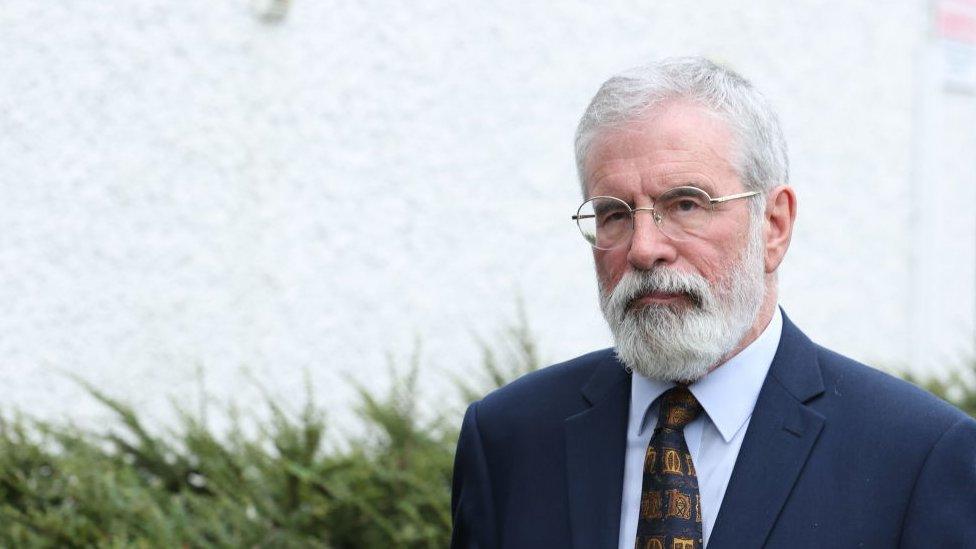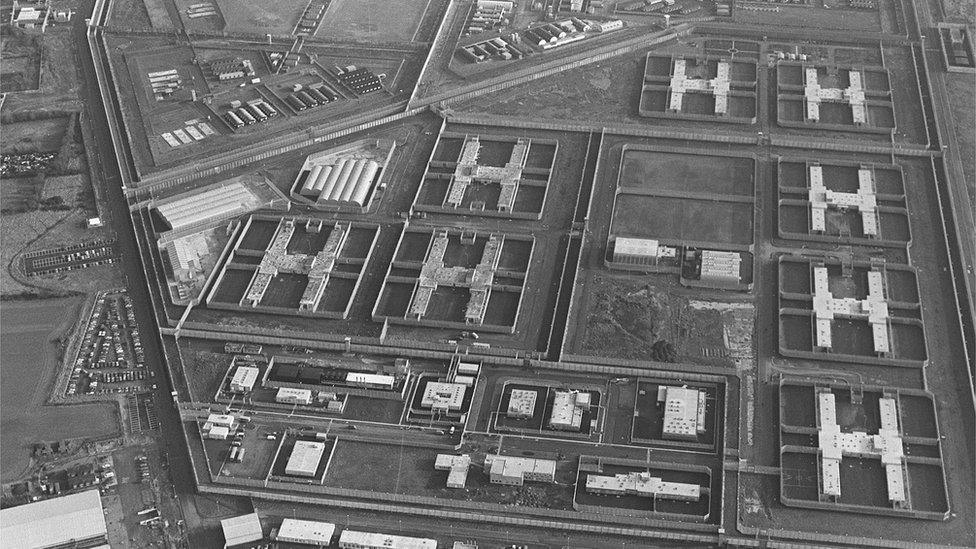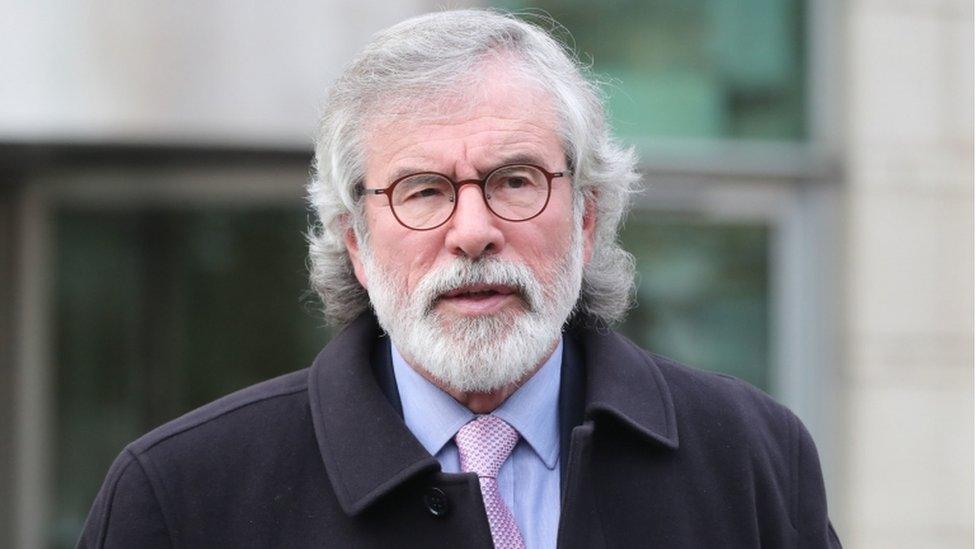Gerry Adams wrongly denied prison compensation, court rules
- Published

The judge ruled that he was satisfied that Mr Adams meets the test for compensation
Gerry Adams was wrongly denied compensation after his convictions for trying to escape from prison in the 1970s were quashed, the High Court has ruled.
The former Sinn Féin president won an appeal to have two historical convictions overturned in 2020.
Mr Justice Colton said he was satisfied that Mr Adams meets the test for compensation.
The judge quashed a previous decision to deny a pay-out.
He also ordered the Department of Justice to reconsider Mr Adams's application.
Mr Adams had been found guilty of two attempts to escape from lawful custody while being held at the Maze Prison - then known as Long Kesh internment camp - in 1973 and 1974.
He was in jail because he had been interned without trial, a practice that was introduced in Northern Ireland amid spiralling violence in the early 1970s.
More than 1,900 people suspected of being members of paramilitary organisations were detained, but many were arrested based on flawed intelligence.
Mr Adams, who has consistently denied being a member of the Irish Republican Army (IRA), was later sentenced to a total of four-and-a-half years in jail.

The Maze Prison closed in 2000
In 2020, the Supreme Court ruled that his detention had been unlawful and quashed both convictions.
The interim custody order (ICO) used to initially detain him was held to be invalid because the then-Northern Ireland secretary, Willie Whitelaw, had not personally authorised it.
Mr Adams issued judicial review proceedings after a subsequent application for compensation was turned down.
'Erred in law'
Under the statutory scheme, payment for a miscarriage of justice is made in cases where "a new or newly-discovered fact" shows the person did not commit the offence, which lawyers representing Mr Adams argued he qualifies under based on new circumstances established by the Supreme Court.
Mr Adams' lawyer said the newly-discovered fact in this case was the confirmation that "there was no personal consideration by the secretary of state, and that (another) minister of state signed the ICO without authorisation to do so".
"If the applicant was not lawfully detained, he did not commit the offence he was convicted of.
"The newly-discovered fact led to the quashing of these convictions," he added.
A lawyer for the Department of Justice had argued it was the analysis of a legal point which led to the guilty verdicts being overturned, rather than a new or newly-discovered fact.
The judge stressed that both counsels were unaware of the factual situation surrounding the invalid ICO.
"The applicant has been convicted of a criminal offence, his conviction has been reversed in circumstances where a newly-discovered fact, the lack of consideration by the secretary of state, shows beyond reasonable doubt that there has been a miscarriage of justice, that is the applicant is innocent of the crime for which he was convicted," he said.
He concluded that the Department of Justice had "erred in law" in determining that the reversal of Mr Adams's conviction arose from a legal ruling on facts, something which he said had been known all along.
Related topics
- Published13 May 2020

- Published10 February 2018

- Published22 November 2022
